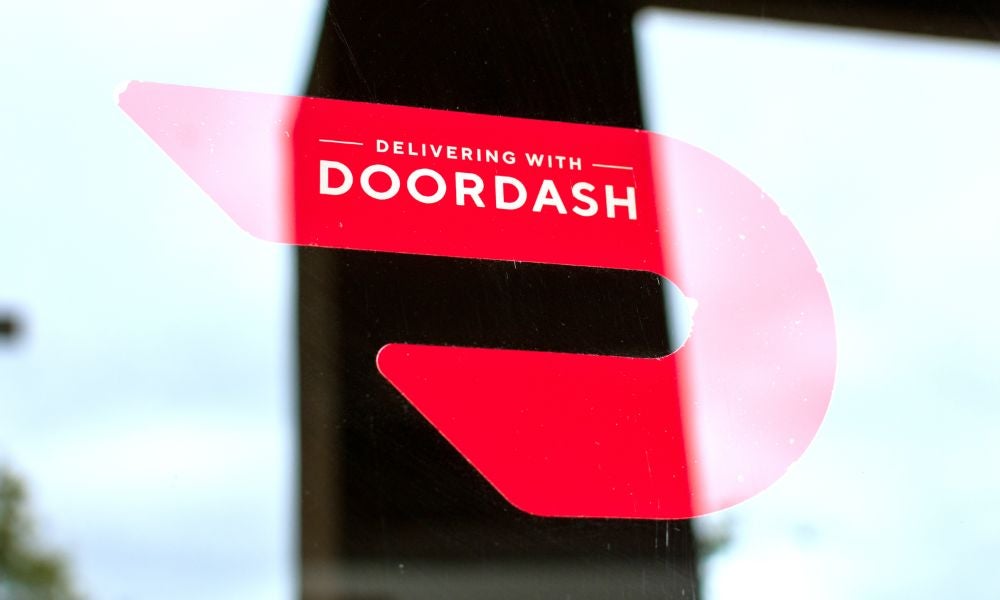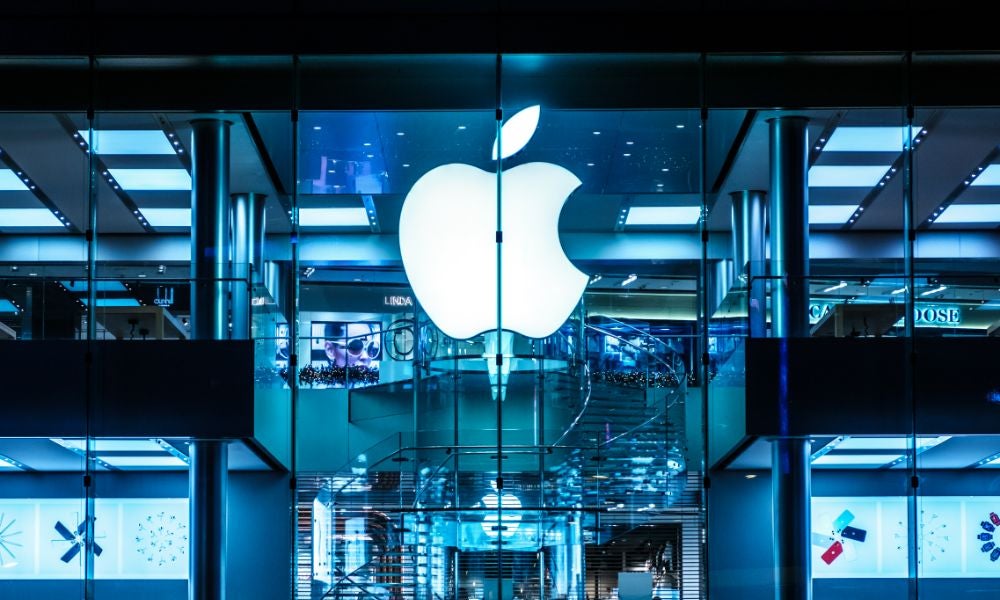DoorDash’s Boris Cheung: building success through relationships
DoorDash’s strategy focuses on growth through operational efficiency and building sustainable relationships in the competitive food delivery industry
The food delivery platform industry has emerged as a significant force in the modern dining landscape. This sector, dominated by players like DoorDash, Uber Eats and Grubhub, has seen remarkable growth, with the global market size expected to surge from US$150.4 billion in 2021 to an estimated $320 billion by 2029, representing a compound annual growth rate (CAGR) of 11.4%.
Closer to home, online food ordering and delivery platforms have developed from an almost unknown service to a $2.2 billion industry over the past 15 years. Industry revenue has boomed at an annualised 13.5% over the five years through 2024-25, and the projected revenue in the online food delivery market for Australia is estimated to reach US$11.29bn in 2024. Despite this impressive trajectory, the industry grapples with significant business and operational challenges that test even the most established players.
DoorDash, a frontrunner in this competitive space, has carved out a substantial market share. At its core, the food delivery platform business model orchestrates a delicate balance among consumers, restaurants, and delivery drivers. This triangular relationship creates a complex ecosystem where satisfying all parties is crucial yet challenging.

Operationally, these platforms must excel in areas such as route optimisation, real-time order tracking, quality assurance, and managing a vast, decentralised workforce of gig economy workers. DoorDash, for instance, works with over 550,000 merchants around the world across 7000-plus cities and relies on a network of more than 3 million "Dashers" to fulfil orders. From a business perspective, companies in this space contend with tight margins, intense competition for market share, and the constant need for technological innovation to retain both customers and partner restaurants.
Meeting challenges in the food delivery platform industry
There are several key issues and trends that will define the food delivery platform industry over the coming years, according to Boris Cheung, Strategy and Operations Manager for DoorDash. He predicted that the relationship these platforms have with their merchants and customers will be of prime importance.
“As much as new merchant acquisition to expand consumer choices is a key pillar of any food delivery platform, their relationships with existing merchants should not be forgotten,” said Mr Cheung, who is responsible for key initiatives in the business, including merchant acquisition, activation, retention and growth as well as global vendor management including sourcing, negotiation, pilots and ongoing program management.
“Similarly, respecting that customers are increasingly savvy and have a variety of options means that companies need to concurrently invest in their loyal base whilst reaching out to new customers,” he added. “Building value and relationships beyond monetary factors will help deliver longer-term sustainable growth for all.”
Forging a dynamic career
Retracing how his career developed, Mr Cheung noted that his success is not the result of any grand plan – when he finished high school and faced his next steps, like many of his peers, he was unsure what he wanted to do.
“It was the first time that I was asked to think about not only what was next but also how my decision would impact my life afterwards. I did have an interest in the business world, and after speaking to friends and family, I came to understand that a Commerce degree would provide me with the broadest range of knowledge to allow me to make a more decisive career decision later,” he said.
Read more: How workers create meaning in the gig economy
Mr Cheung ultimately chose to attend UNSW Business School, where he earned his Bachelor of Commerce degree in Accounting & Finance. The school’s vibrant culture and active societies influenced his decision, and he notes that he still regularly sees friends he met through the UNSW Business Society.
The decision proved well-advised, as Mr Cheung has enjoyed a remarkable professional career spanning audit, analytics, commercial finance and strategy in various industries. His insights reflect a commitment to personal success and fostering meaningful relationships in the professional realm.
Post-university, Mr Cheung landed a formative role with Apple, working in Sydney as a Senior Analyst in demand forecast and analytics. His five years with the tech giant gave him valuable experience unlocking commercial opportunities and developing a deep understanding of local and overseas markets.
Next was a stint at Afterpay, where he worked from 2021 to 2023 as Retail Growth Manager, managing its ANZ in-store business and leading the commercial direction corresponding strategy. That role also included delivering detailed commercial and financial analysis, creating a channel strategy, end-to-end customer journey management, and planning and executing new products and features. He joined DoorDash in July 2023 as Strategy and Operations Manager responsible for the company’s ANZ markets.
The value of fundamentals
It’s the growth he led at Afterpay and now Doordash that Mr Cheung sees as his most significant professional success.
“It’s hard to point to specific achievements, but being able to repeatedly point to growth metrics knowing that they were the direct result of my ideas and strategies is incredibly fulfilling,” he said. “Working for fast-paced, younger companies grants you greater autonomy, but it also means greater accountability and the need to be able to own successes and failures.”

The experience he obtained working for larger corporations was also formative. He called his time working for Apple “unforgettable”, noting that it enabled him to travel across Southeast Asia, but acknowledged it also had its challenges. “Through the two years of COVID lockdowns, we balanced global supply issues and unprecedented demand as the world moved to work/learn from home. My manager at the time was incredibly supportive, and I owe a lot to him for being able to navigate that time of my career,” he said.
While Mr Cheung enjoys working for smaller companies, he recognises that this time with Apple was impactful for the overall trajectory of his career. “I don’t believe I could be where I am today without previously working for Apple and other large, established businesses,” he said. “The ways of working and fundamentals are more rigid, but there are reasons why they are the success stories of the business world.”
Striking a balance with meeting challenges
Every career comes with challenges, though. For Mr Cheung, one of the most daunting has been navigating the professional world – and he noted that it’s a challenge that doesn’t stop after one’s first professional job.
“Every company and manager has different expectations, so make sure to ask when unsure and not be too hard on yourself when you make a mistake,” he advised aspiring leaders, passing on a hard-won lesson. “Learn, and then one day pass on that knowledge to the next generation.”
Listen now: Trade secrets: How hipages went from start-up to ASX-listed company
Another key challenge has been “accepting that comparison is the thief of joy”, he said. “Whether it be consciously or subconsciously, most of us have a network of peers and family to whom we compare ourselves on a regular basis. Our achievements can sometimes feel overshadowed by our peers’ seemingly higher accolades. Every career path is different, and our jobs are not what define us in life.”
The final challenge Mr Cheung singled out is “the classic finding work-life balance and, in a broader sense, finding happiness and fulfilment in my career”.
“Chasing the next promotion or company can be a great motivator, but it can be even greater when the promotion or company is aligned to your personal life goals,” he said. “It wasn’t easy, but I did find the greatest job in my career when I was able to find jobs that challenged me professionally but still provided me with the time and headspace to enjoy life outside work.”
For Mr Cheung, finding challenging roles while maintaining a healthy work/life balance has been the professional holy grail, but his experience shows it’s possible to pull this off. It’s about making sound, forward-thinking decisions, even when one hasn’t yet settled on a path, and focusing on developing the skills needed to thrive in a fast-changing business world.
“In a world where we are regularly exposed to successful young individuals, it can be easy to desire a shortcut through your professional career,” he added. “It is important to remember that success can come in many forms and at different times, but fundamentals of business and professional ways of working will serve you well in the long run.”
Subscribe to BusinessThink for the latest research, analysis and insights from UNSW Business School
Looking forward
Strong relationships are at the centre of Mr Cheung’s professional philosophy, as is a focus on building skills toward a goal. Returning to his advice for aspiring leaders, he noted that while no career is always easy, tough times help build resilience and an appreciation for the easier times. “Finally, as the old adage goes, it’s a marathon and not a sprint,” he said.
“You will make mistakes; you will turn right when maybe you should have turned left; kept running when you actually need a break. Paths in the professional world are more diverse than they have ever been, and there’s more than one road to your destination, even if your goals change. Work hard and never forget to balance your personal life with professional goals, and you will always get to where you want to get to.”

